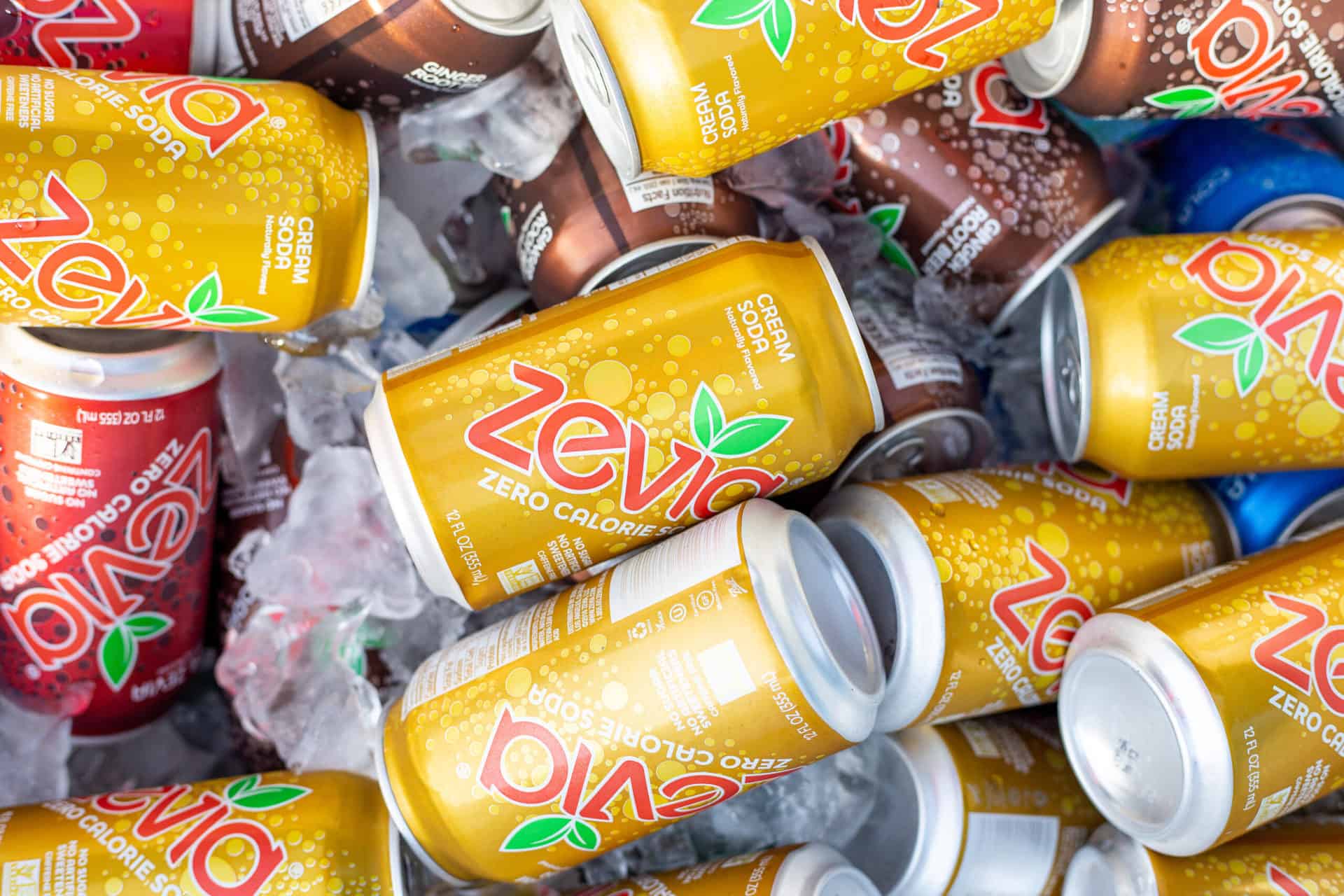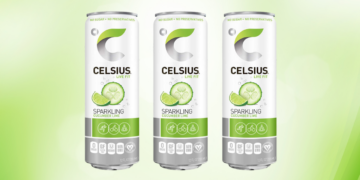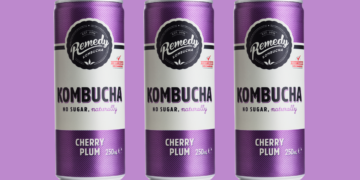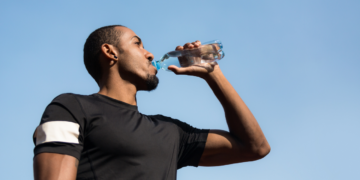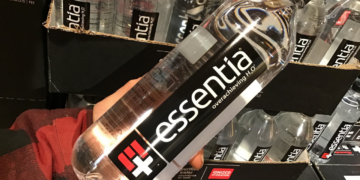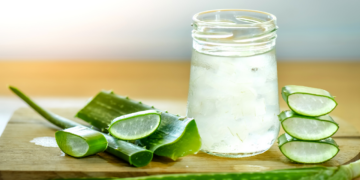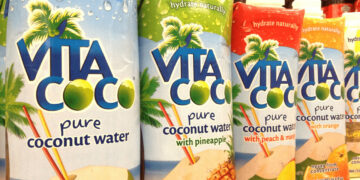As the general public appears to grow more health-conscious, so has the rise of healthy drinks and alternatives to soda. Zevia is one of the best-known sugar-free soda brands. You might be thinking that this is too good to be true. After all, with concerns about sugar-free sweeteners in other sodas, shouldn’t there be a catch?
We’ve done some digging to get to the bottom of whether Zevia is healthy or not.
There aren’t many “health” benefits of Zevia, per se, as it doesn’t contain significant vitamins and minerals. However, unlike competitors, it has no artificial coloring or sweeteners. Overall, it is a way to stay hydrated and boost energy as it often includes caffeine (45g).
What is Zevia? Is Zevia Healthy
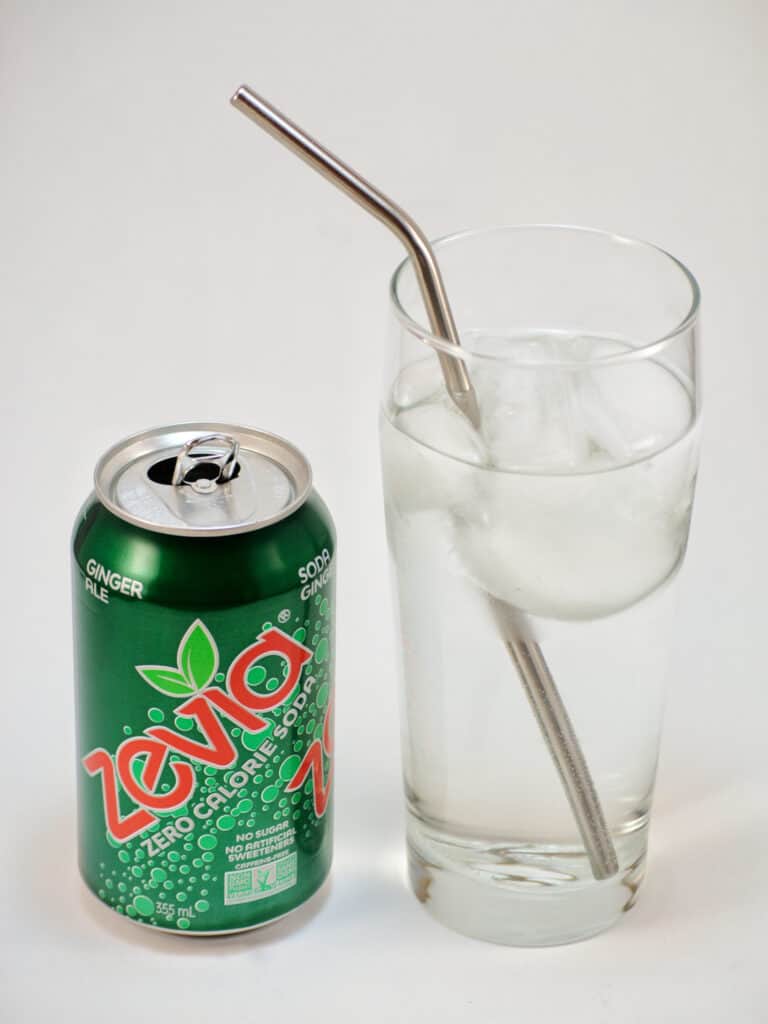
Zevia sodas are zero sugar and zero-calorie beverages that are naturally sweetened. They’re best known for their sodas but they also sell energy drinks, carbonated water, and tea.
Zevia is very accessible to most diets; it’s GMO-free, gluten-free, Kosher, and vegan.
Zevia does not add extra colors or caramel color to their drinks. This means, regardless of whether you’re drinking cherry cola, cream soda, ginger ale, or grape soda; it’s all the same clear color.
Their main selling point is that they don’t use sugar, high fructose corn syrup, or highly processed artificial sweeteners to give their drinks a sweet taste.
Zevia has lots of different products, but the ingredients in most of their sodas, regardless of if it’s Lemon Lime Twist or orange soda, are as follows:
- Carbonated Water
- Stevia Leaf Extract
- Natural Flavors
- Citric Acid
The nutritional values of Zevia are as follows:
- Calories: 0
- Total Fat: 0g
- Sodium: 0mg
- Total Carbs: 0g
- Sugars: 0g
- Protein: 0g
- Caffeine: 45mg
Analysis of Zevia’s ingredients
Carbonated water
Carbonated water, also known as sparkling water, is water that has been made fizzy by CO2 gas. There don’t seem to be any negative health consequences of this kind of water. It’s just as hydrating as regular water and nutritionally equivalent.
Some people feel gassy and bloated after fizzy drinks. So, you might feel just as unsettled after Zevia as you would after a regular can of soda.
Fizzy water is slightly acidic due as the water and carbon dioxide reacts together. That should not be a cause for concern as there is no evidence to suggest that acidic drinks make your body acidic.
Compared to sugary fizzy drinks, carbonated water does not damage the enamel on your teeth anywhere near as much. As Zevia is sugar-free, it shouldn’t be bad for your teeth – but dental hygiene is still important!
Stevia leaf extract
Stevia leaf extract has 0 calories but is 200 times sweeter than table sugar.
This might sound too good to be true but stevia extract is promising and generally recognized as safe for consumption. Compared to sweeteners like aspartame and sucralose, the Center for Science in the Public Interest recommends stevia as a better option.
One study found that stevia can help with blood sugar regulation. There have been concerns that people will “compensate” after consuming sweeteners like stevia or synthetic sweeteners by eating more food later. However, that same study noted that people consuming stevia reported similar levels of satiety compared to sugar.
Other studies noted that stevia can reduce fasting blood sugar levels and blood pressure. However, the sizes of the effects were small and more research is needed.
Natural flavors
Zevia doesn’t specify what their natural flavorings are.
Generally, “natural flavors” are derived from natural sources. The catch is that these are usually not in their purest form. A natural flavor, whether it contributes to the product’s aroma or flavor, will have derived from a plant or animals; like spices, herbs, leaves, meat, or fruit. These can then be fermented, distilled, or altered in a lab setting.
That said the purpose of natural flavors is usually for taste, and not to add nutritional value. Although safe for consumption they bring any health benefits.
Citric acid
Citric acid sounds like an all-natural additive. After all, isn’t it naturally found in citrus fruits? While there is citric acid in citrus fruit, the kind found in most food products is not the same as what is in lemon juice. That said, Citric acid is generally considered safe by the FDA and is commonly used for flavoring and as a setting agent.
Some animal studies have found that citric acid can help enhance how the body absorbs and uses minerals. However, the amount you would realistically be getting in a can of Zevia is negligible.
Some people seem to have allergic reactions or negative reactions to manufactured citric acids. Some people report joint pain, stomach upset, and shortness of breath. These reactions are rare and the amount found in can Zevia is most likely not enough to trigger it.
Is Zevia the same as zero-calorie soda with artificial sweeteners?
While Zevia is a zero-calorie soda, it’s not the same as other brands with zero-calorie drinks and soda. Diet soda tends to use artificial sweeteners like aspartame, cyclamates, saccharin, acesulfame-k, or sucralose. Diet sodas also use artificial colors, hence why orange soda is orange in color. Zevia uses stevia and no artificial colors.
Some studies have found that artificial sweeteners, such as sucralose, can impact healthy bacteria in your gut. Other studies have also drawn attention to sucralose-reducing insulin sensitivity. Low insulin sensitivity means that the body cannot use blood glucose properly, which can impact blood sugar levels.
Some animal studies have deduced that these kinds of sweeteners can increase the risk of cancer, brain tumors and cause weight gain. Keep in mind that animal studies do not always replicate the same results in humans. It should be noted that a lot of studies on zero sugar alternatives and cancer or other health issues are conflicting. More research is needed in this area. However, stevia does not seem to have the same health concerns surrounding it.
What are the Benefits of Zevia?
There aren’t many “health” benefits of Zevia. It doesn’t contain any vitamins and is very low in minerals too. However, there are some perks to drinking Zevia.
The main selling point is that it’s not bad for you and is a healthier option compared to soda.
- Caffeine Boost: There’s 45 mg of caffeine in a can of Zevia. For comparison, an average can of soda contains 29.4 mg of caffeine and a standard cup of coffee contains 94.8 mg. Caffeine can help you feel less tired, more energized, more alert, and can even boost metabolism. With less caffeine than coffee, Zevia shouldn’t leave you feeling as jittery. Bear in mind that not all Zevia has caffeine, such as orange soda or their grape drink.
- Provides calcium: There is a trace amount of calcium in Zevia. 2.6% of the recommended daily amount to be exact! This won’t make a huge difference, but everything adds up. Calcium is important for healthy bones and teeth.
- A way to keep you hydrated: As the Zevia drinks are mostly made up of sparkling water, they’re good at keeping you hydrated.
- Can help manage sugar intake: Whether you are diabetic and need to monitor your blood sugar, or simply want to enjoy soft drinks with zero calories, Zevia can satisfy your cravings.
What Makes Zevia Bad For You?
There isn’t really anything “bad” about Zevia. There are no artificial flavors, artificial ingredients, or added sugars in their drinks. As far as soda goes, that’s as good as you can hope for when it comes to finding a healthier alternative to drink.
If you’re sensitive to citric acid, then you might feel unsettling after drinking Zevia- especially in large doses.
Due to how sweet stevia is, it is sometimes mixed with a filler like sugar alcohol such as erythritol. Some people experience stomach discomfort after consuming alcohol sugars like erythritol. It is not clear if there are any fillers like this in a Zevia drink.
Alternatives to Zevia that are the healthiest?
Zevia isn’t unhealthy, but it’s lacking any substantial health or nutritional benefits. Here are some drinks that are low in calories and sugar with some nutritional benefits.
Fruit-infused carbonated water
Plain sparkling waters contain no sweeteners like Zevia soda does. Adding in some real fruit will add some vitamins and nutrients. Unless you eat the fruit, you won’t get all of the nutrients but some of the fruit juices will leech into the water making it naturally sweet.
Tea
Tea is a natural source of caffeine. It’s just as hydrating as a can of Zevia and has health benefits you won’t find in this soda alternative.
Most teas; whether it’s black tea, green tea, or herbal tea are very healthy. They’re full of antioxidants. Antioxidants are believed to rescue the risk of illness and disease such as some kinds of cancers and heart disease. They are also anti-aging. Tea also has anti-inflammatory properties. Keep in mind that the health benefits of tea are offset by adding sugar.
Black coffee
Not everyone can tolerate black coffee. Personally, I like it but it’s an acquired taste. I would recommend drinking water straight after black coffee to avoid staining your teeth.
Coffee is believed to have lots of health benefits such as offering some skin protection against skin cancer and a lower risk of other cancers, like liver cancer, too. Studies have also found that coffee can reduce the risk of MS and promote longevity overall.
If you need to add a splash of milk, you won’t lose out on these benefits but you probably shouldn’t add sugar.
Conclusion
The good news is that Zevia is a good soda choice if you want to consume less sugar. It has a sweet flavor but doesn’t have the health concerns that come with many common sugar alternatives like aspartame. It’s a stretch to say there is such thing as a healthy soda but Zevia is probably as good as it gets!

